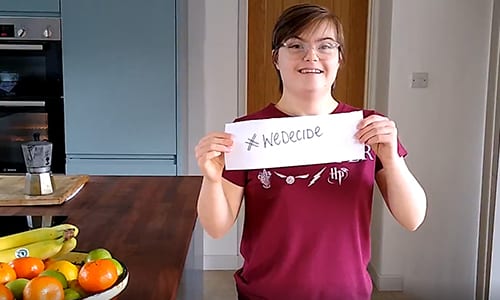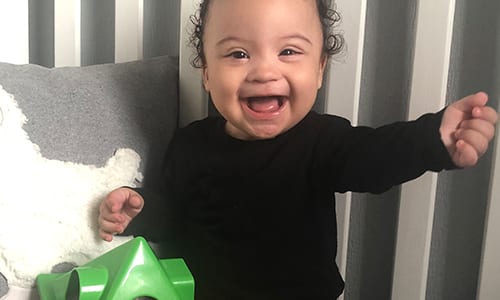About Down’s Syndrome
What Is Down’s Syndrome?
Down’s syndrome is when you’re born with an extra chromosome. You usually get an extra chromosome by chance, because of a change in the sperm or egg before you’re born.
What it’s like to have Down’s syndrome
People who have Down’s syndrome will have some level of learning disability. This means they’ll have a range of abilities. Some people will be more independent and do things like get a job. Other people might need more regular care.
Like everyone, people who have Down’s syndrome have:
- their own personalities
- things they like and dislike
- things that make them who they are
In Their Own Words
This video, ‘Chromosomes R Us’, is a short film by actors who have Down’s syndrome video explaining how Trisomy 21 occurs.
It was made by Shabang Inclusive Learning in collaboration with Mediapreview, Huddersfield. Down’s syndrome (or Trisomy 21) is a naturally occurring chromosomal arrangement that has always been a part of the human condition, being universally present across racial, gender or socioeconomic lines in approximately 1 in 800 live births. Down’s syndrome usually causes varying degrees of intellectual and physical disability and associated medical issues.
Use of Terminology
When speaking about issues relating to Down’s syndrome in a way that is both factually accurate and inoffensive to the general public, including people who have Down’s syndrome and their families, please consider the table below:
Do Not Say |
Do SAY |
|---|---|
| Suffers from OR is a victim of Down’s syndrome | Has Down’s syndrome |
| A Downs’s baby/person/child | A person/baby/child who has Down’s syndrome |
| Mentally handicapped/backward | Learning disability or intellectual disability |
| Disease/illness/handicap | Condition OR genetic condition |
| Downs (as an abbreviation) | DS (as an abbreviation if necessary) |
Down’s syndrome or Down syndrome?
It is generally accepted that both Down’s syndrome and Down syndrome can be used interchangeably.
For us at the Down’s Syndrome Association, the most important thing is the use of person first terminology (e.g. ‘person who has Down’s syndrome’, not ‘Down’s syndrome person’).
The use of the possessive apostrophe is a recognised model that is used for a number of conditions in Britain, thus, in the UK Down’s syndrome is used more commonly, whereas in other countries the more prominent is Down syndrome.


